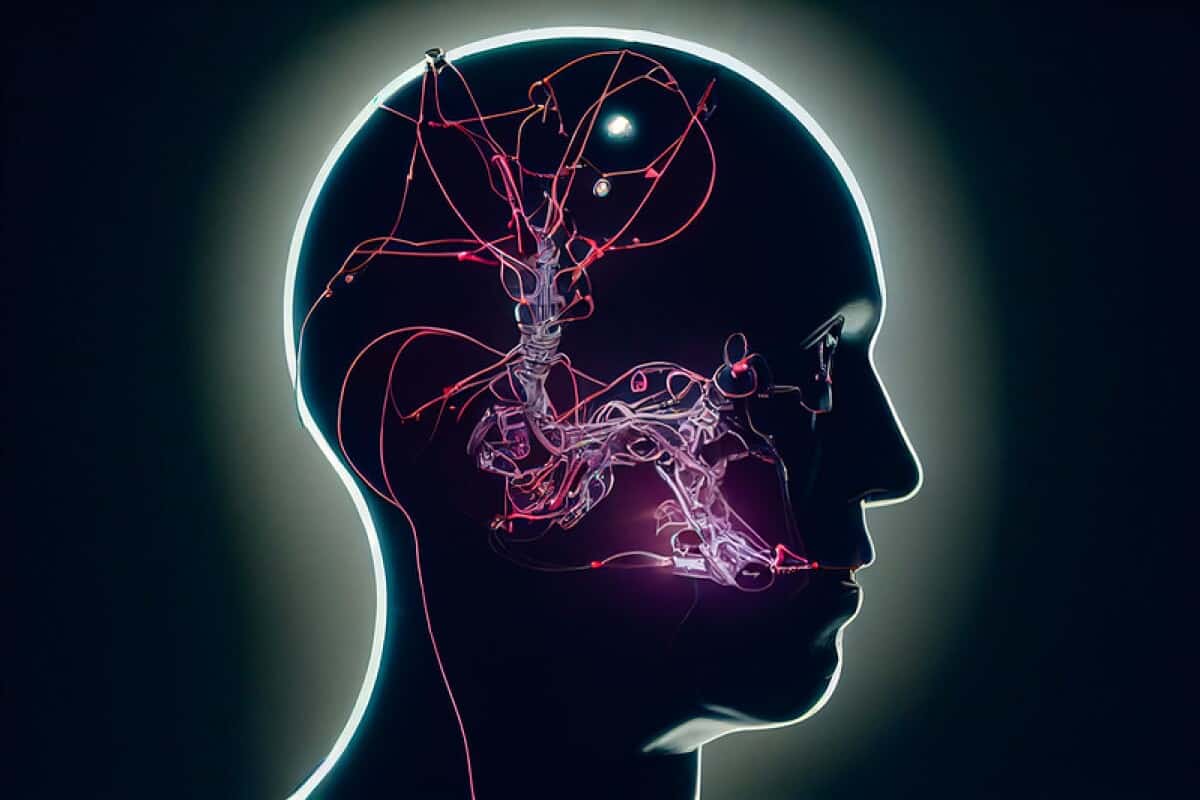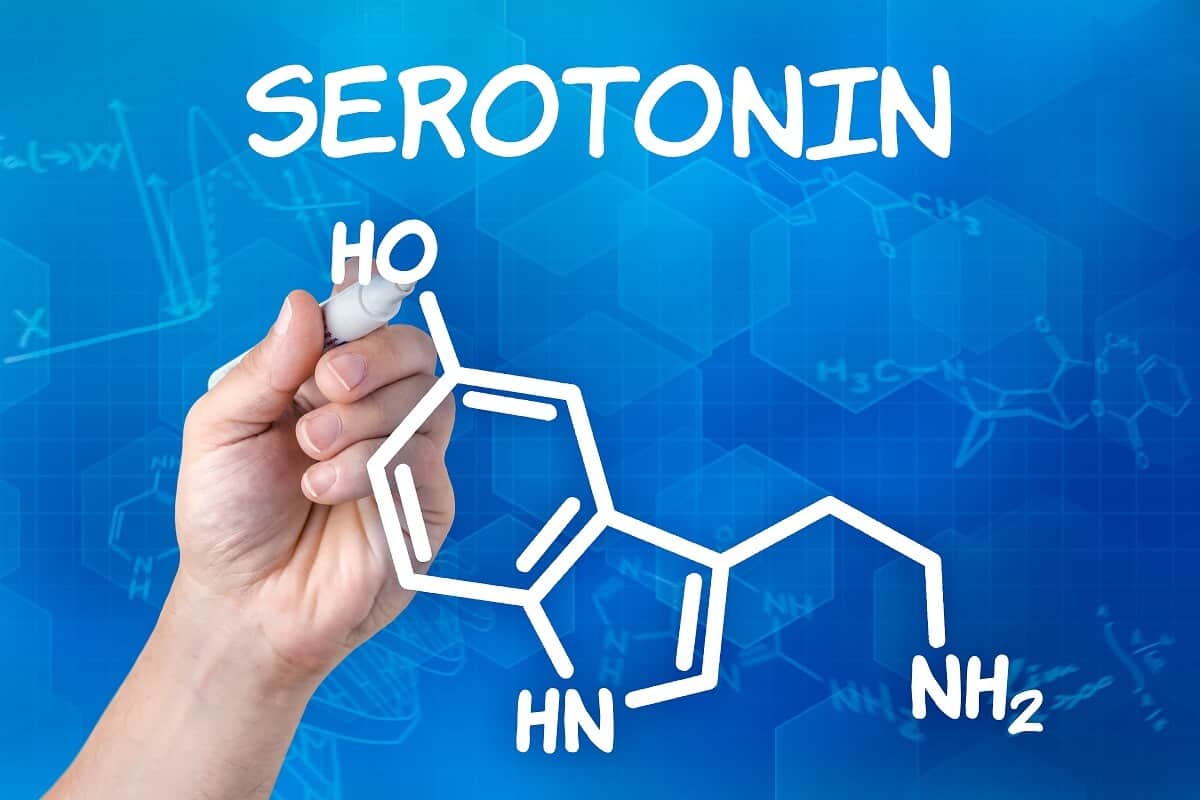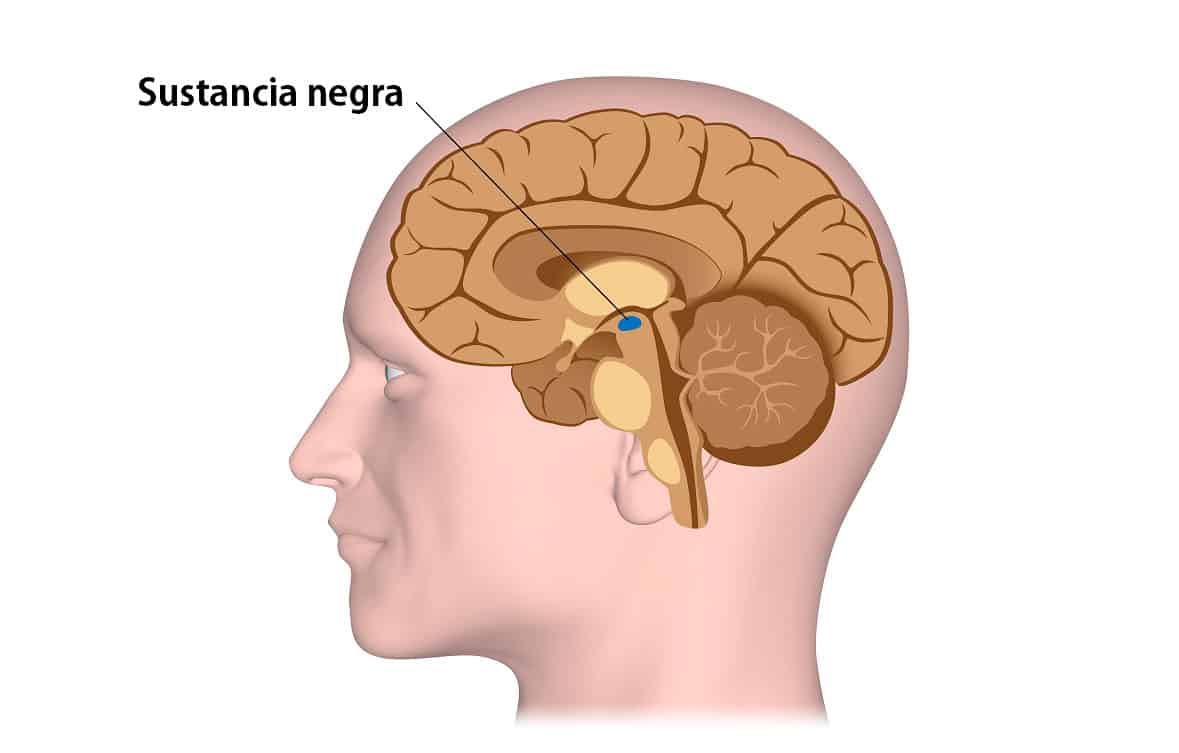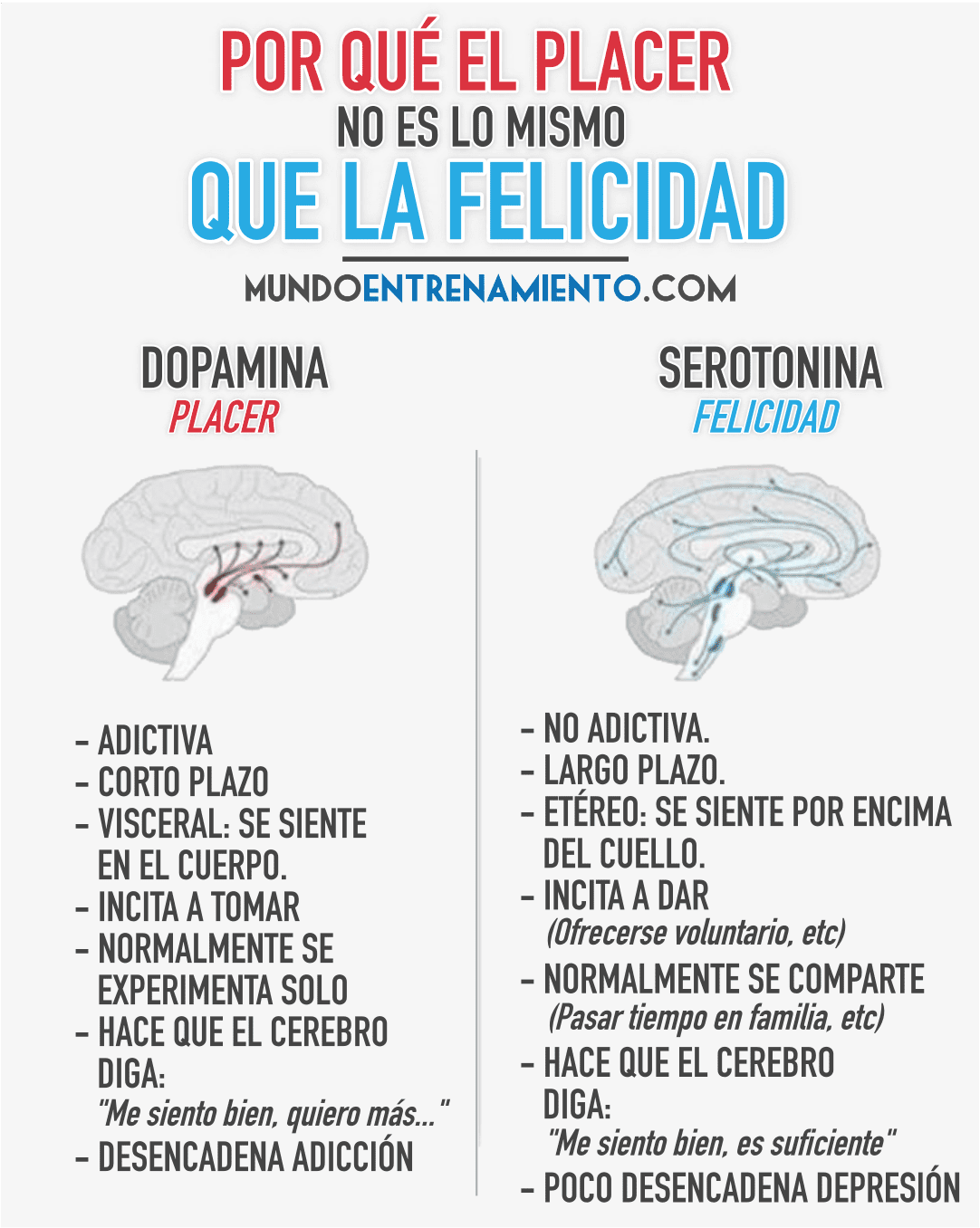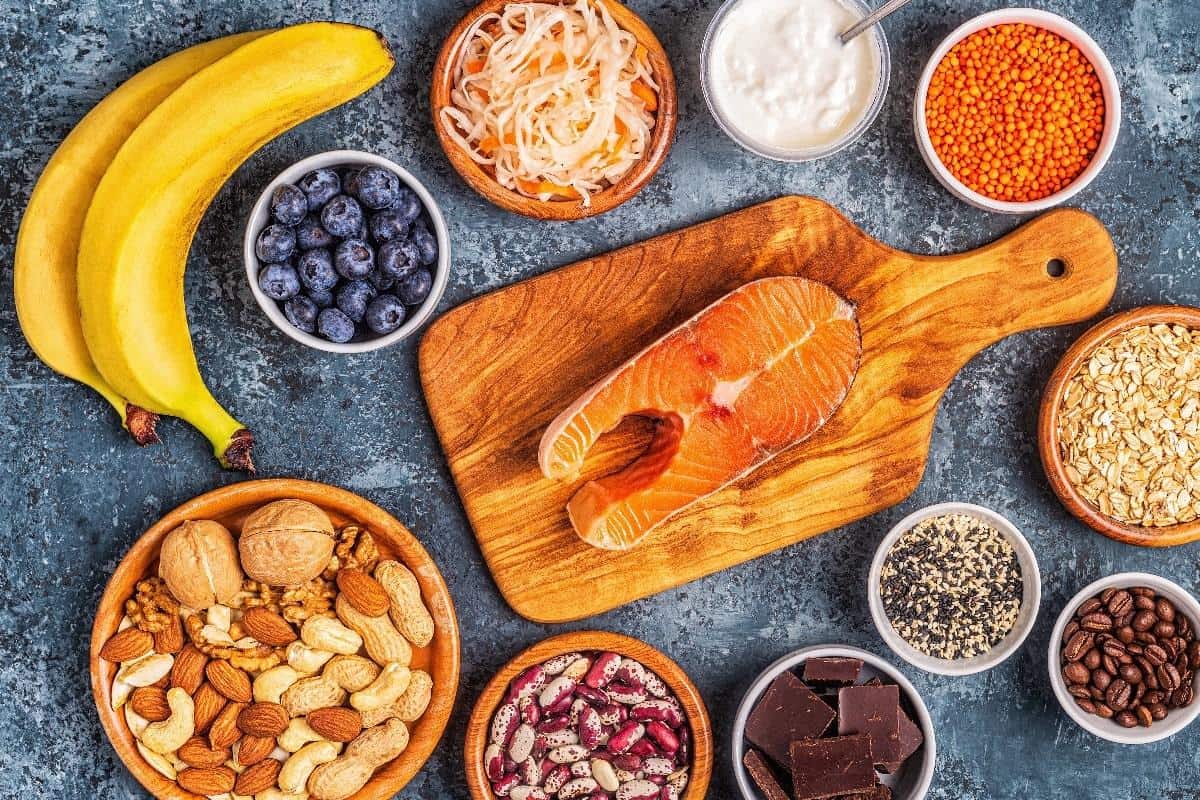Have you ever thought about how our brain works? Who is responsible for our actions and well-being?
In this article we will describe two neurotransmitters of the nervous system: serotonin and dopamine, as well as their main functions and differences.
In addition, we will discuss a study that has been done on the genetics of dopamine and serotonin in psychiatric disorders, and we will mention some foods that help boost the production of serotonin and dopamine in the body.
What are neurotransmitters?
There are several behaviors of an individual that are influenced by biological, psychological and environmental factors. Within the biological factors, we find serotonin and dopamine, which are two monoaminergic neurotransmitters that have been conserved throughout the phylogeny, and which have a notorious influence on the behavior of the different animal species. (1)
But…..what are neurotransmitters? They are small molecules that are mainly found in our nervous system, and that have the capacity to send a series of impulses, acting as messengers, in the form of discharge, directed to the brain so that each neuron can execute its function correctly.
Serotonin and dopamine are able to bring us all those feelings of pleasure and happiness in situations of mental balance, which help us to satisfy our main needs. However, as each one fulfills a different function, we will understand the differences between each of them later on.(2)
What is serotonin?
Serotonin is a neurotransmitter of our nervous system, also known chemically as 5-HT, located mainly in the brain, intestines and blood platelets.
This neurotransmitter is commonly known as “the happiness hormone” because it plays an important role in a person’s state of mind, generating feelings of well-being, relaxation, satisfaction and increasing concentration and self-esteem. (4)
In addition, it has been shown to be involved in a wide variety of functions, among which we can highlight: (3)
- Digestion: as there are high amounts of serotonin in both the stomach and the intestine, this hormone is involved in the control of bowel function and bowel movements. When serotonin levels are elevated, this could cause problems such as diarrhea, while if the levels are too low, it could lead to constipation. For this reason, the activity it performs in the intestine is related to the increase or decrease of appetite.
- Mood control: Serotonin affects mood, anxiety and happiness. Insufficient levels of this hormone have been linked to the onset of depression. On the other hand, illegal drugs such as ecstasy or LSD, produce an increase in serotonin, and therefore, an alteration in mood. Specifically, it has been demonstrated that low levels of serotonin in our organism will cause certain mental illnesses such as autism, schizophrenia, hyperactivity, insomnia, anxiety, stress, obsessive compulsive disorder, aggressiveness, etc.
- Sexual function: low levels of serotonin produce an increase in sexual desire, while high levels of serotonin cause an inhibition of sexual desire.
- Sleep control: serotonin is involved in heart rhythm and in the control of melatonin production, since serotonin is the precursor of melatonin, contributing to regulate the sleep-wake cycle.
- Body temperature: serotonin performs body temperature maintenance functions, being very important to prevent the death of many of our body’s cellular tissues.
- It also plays a very important role in the formation and maintenance of bone structure (4).
What is dopamine?
Serotonin and dopamine are neurotransmitters of the nervous system that help us to transmit electrical signals from one neuron to another. However, dopamine is released by dopaminergic neurons and synthesized by tyrosine.
The main location of dopamine is in the substantia nigra of the brain, and it has the capacity to activate five cell receptors (D1 to D5) that give rise to the different functions of dopamine in our organism:
- Movement: for motor functioning it is necessary to have optimal levels of dopamine, because a deficit located in the basal ganglia (allow movement) could develop Parkinson’s disease, as well as an excess of dopamine could produce hyperkinesic disorders, such as nervous tics.
- It participates in memory, attention and learning, since dopamine is found in the hippocampus and cerebral cortex. The most important disease caused by a deficit of dopamine in the organism is known as “attention deficit disorder”, which prevents the development of a correct learning of the person in question.
- Sensation of pleasure: this is due to the fact that the limbic system, related to the sensations of pleasure, secretes this substance. An example of this is that when we carry out activities that we like, the levels of dopamine in our organism increase and, therefore, we will obtain greater sensations of pleasure and reward.
- Serotonin and dopamine are important in the regulation of sleep: in particular, dopamine is responsible for transmitting the feeling of sleep when we have not slept for many hours, as it is involved in the circadian system, and also in the release of melanin.
Differences between serotonin and dopamine
As previously mentioned, serotonin and dopamine are two neurotransmitters that regulate some of our body’s functions. However, although both hormones cause a pleasurable sensation, certain differences in their functioning should be noted.
First, the main difference between serotonin and dopamine is the production. Serotonin is synthesized from the amino acid tryptophan, whereas dopamine is produced from tyrosine.
On the other hand, dopamine is a neurotransmitter that excites the nervous system. For example, when we perform an activity that we like very much, or eat a food that we love, we release a large amount of dopamine, so the brain interprets it as pleasure. However, serotonin is an inhibitory neurotransmitter in the brain, i.e. it is involved in blocking some negative emotions, such as pain or violence.
In other words, the second most characteristic difference between serotonin and dopamine is the regulation of mood, since serotonin has a great therapeutic effect that generates a feeling of happiness in our brain, whose effects are produced in the mood, while dopamine is more related to the feeling of pleasure.
In addition, another important aspect is the involvement of serotonin and dopamine in body movements. That is to say, a deficit of dopamine has been related to the appearance of stiffness in the limbs or the onset of Parkinson’s disease, while no studies have been found that inform us of the role of serotonin in the control of the motor part of the body.
Foods that increase the production of serotonin and dopamine in our organism
There are a large number of foods that will help us to boost the production of serotonin and dopamine in our body. These foods are the following:
Dr. Juan Pablo Bustamante, stated that the type of food regulates the intestinal microbiota. Therefore, depending on the type of food, there will be processes that help us to avoid diseases and others to trigger them.
Specifically, Sofia Martinez (M.P. 5401), a graduate in Nutrition, adds a list of foods that help to increase the production of serotonin and dominates in our body: (5)
|
How can we increase serotonin and dopamine levels artificially?
In some cases, it is very difficult to increase the levels of serotonin and dopamine in the body, and therefore to improve a person’s mood. For this reason, some pharmaceutical products are recommended: (6)
- Tryptomax tryptophan
- Ansiomed Positive Mind
- Tryptophan with melatonin
La melatonina es una hormona que mejora la calidad del sueño y refuerza el sistema inmunológico. El triptófano con magnesio y vitamina B6, ayuda a la producción de esta dentro del organismo.
El triptófano actúa como precursor de la serotonina, un neurotransmisor implicado en la regulación del estado anímico, el estrés, y el descanso.
El L-triptófano es un aminoácido esencial, lo que significa que nuestro organismo no puede producirlo por sí mismo y debe ser adoptado de manera exógena al organismo.
Besides the brain, where else in the body is serotonin and dopamine produced?
Although most people think that serotonin and dopamine are found only in the brain, there are many experts on the subject, such as Dr. Juan Pablo Bustamante (PhD, professor and academic director of Biomedical Engineering at the School of Engineering of the Austral University and CONICET researcher), who has shown that serotonin and dopamine are neurotransmitters that are found, in large part, in the intestine, due to the microbiota.
Hundreds of millions of neurons are found in the intestine, which is why the intestine is also called the “second brain”. In addition, Dr. Bustamante has commented that the intestinal flora is the set of all types of microbes that inhabit the body and produce important molecules to control our state of health.
Specifically, in the case of dopamine, scientific evidence shows that more than 50% is produced in the intestine and that the intestinal microbiota is responsible for regulating its levels through different molecules that are produced inside the intestine.
In addition, another important fact is that a research carried out by the University of California at Los Angeles (UCLA) showed that 90% of the serotonin in the human body is produced in the intestine due to the intestinal flora that lives inside.
But …..How did they obtain these results? The study was based on the bacteria Turicibacter sanguinis and Clostridia, thanks to which they discovered that they produce molecules that favor the production of serotonin by intestinal cells.
To verify this fact, they made a genetic modification to rodents so that they did not have these two microorganisms and it was obtained that these animals lost more than 50% of the production of intestinal serotonin.
In addition, in the journal Nature, the UCLA researchers stated that their study showed the response of bacteria to drugs influenced by serotonin and dopamine such as antidepressants, because there is only one way of communication between bacteria and cells, through these two neurotransmitters.
The genetics of serotonin and dopamine in psychiatric disorders
A study conducted by the Genetic Psychiatry Unit, Psychiatry, Mental Health and Addictions Group, Vall d’Hebron Research Institute (VHIR) has investigated the role of serotonin and dopamine in the regulation of two very important neurotransmitter mechanisms in our brain (7).
This study investigated the genetic variants common to the genes of these neurotransmitter pathways in eight psychiatric disorders(ADHD, anorexia nervosa, Autism Spectrum Disorder (ASD), bipolar disorder, depression, obsessive-compulsive disorder, schizophrenia and Tourette’s syndrome), and the combinations between them. To carry out this study, data from thePsychiatric Genomics Consortium were used, and the results of diseased patients were compared with control individuals, i.e. those who did not have the disease.(7)
One of the results obtained allowed us to identify that some variants in the CACNA1C gene , responsible for establishing connections between neurons in the cerebellum, collaborate with the development of bipolar disorder and schizophrenia.
We were able to identify 67 dopamine and/or serotonin genes, which were related to some of the eight disorders described above. However, only 12 were associated with two of these conditions at the same time (7).
As a final analysis, all genes of the same pathway were considered together, and it was found that the dopamine-related system is highly relevant in ADHD, ASD and depression.
On the other hand, the serotonin-related pathway was found to be more important in depression and bipolar disorder. (7)
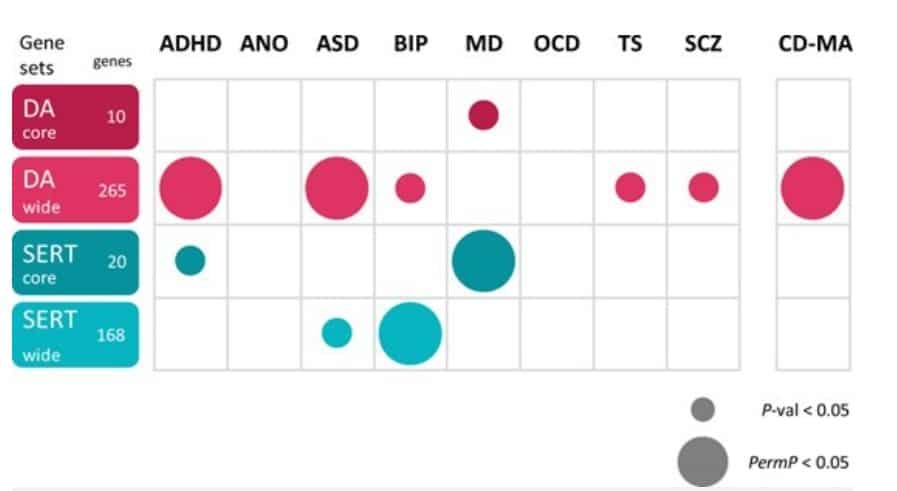
As a final conclusion it was deduced that there are set of genes related to the dopamine and serotonin neurotransmitter pathways that have genetic variants that influence the development of the 8 psychiatric disorders mentioned above.
Bibliographic references
- Ramos, A. (May, 2021). DOPAMINE AND SEROTONIN: TWO NEUROMODULATORS OF BEHAVIOR FROM THE NEMATODE CAENORHABDITIS ELEGANS TO HUMAN. Doctoral dissertation. University of Córdoba.
- Dopamine and serotonin, the neurotransmitters that influence mood – Paleobull(n/d). Paleobull.com. Retrieved March 27, 2023, from https://paleobull.com/blogs/estilo-paleo/dopamina-y-serotonina-los-neurotransmisores-que-influyen-en-nuestro-animo.
- Bastardas, M. T. (2019, May 15). Differences between Dopamine and Serotonin. psicologia-online.com.
- Sanitas (n/d). Serotonin and emotions. Sanitas. Retrieved March 27, 2023, from https://www.sanitas.es/sanitas/seguros/es/particulares/biblioteca-de-salud/enfermedades-y-trastornos/endocrinas/serotonina.html
- Ziccardi, V. V. (2023, March 17). Serotonin and dopamine: the other part of the body where they are produced and what foods contain them. LA NACION.
- Blog, F. (2022, August 31). How to increase dopamine and serotonin – FarmaViesques. Online Pharmacy and Online Parapharmacy in Spain; Farmacia Viesques.
- The genetics of dopamine and serotonin in psychiatric disorders(2022, January 20). Genotyping.
